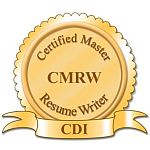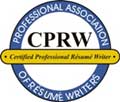After reading my colleague’s, Jennifer Anthony, recent blog post, Targeted Resumes: How to Target Your Resume to the Job You Want, it got me thinking. As resume writers, we tell our clients, you’ve got to focus your job search. You’ve got to have a target. You’ve got to know your audience. However, with all this talk about focus, seldom do I see anything written about an important tool to help with that decision-making process – The Information Interview.
I frequently get calls from clients who want to start a career after completing degree studies or are ready for a change after reaching advanced degree goals. A common thread running through these conversations is an “I know what I don’t want to do. But, I’m not exactly sure what I do want.” statement. Knowing what you don’t want to do is a good start, but you’ve got to have some idea about what you want before your start down that job search path.
In comes good old-fashioned Information Interviewing. What’s an Information Interview you say? Well, here, cut and pasted from a handout I have on the topic is more information:
What it is:
- A method for conducting an organized, focused and productive job search. It also helps assist in career change/career choice decisions.
- A means of gathering information at any stage of your work life (paid or volunteer).
- A method of matching your interests and skills to the realities of the job market.
- A means of establishing a network of useful contacts in your career field or interest area.
Why do it:
- To investigate career fields, career issues or interest areas:
- What are the overall prospects for a career filed? Is it overloaded or expanding?
- What are the main issues, the problems and needs of a career field?
- What does it mean to work or be involved in a career field? On a day-to-day basis?
- Given my particular background, where would I fit? What types of jobs are available? Is additional training necessary?
- To research a particular organization or a specific jobs within the organization:
- What is the organization structure? Where might my skills and interest fit into that structure?
- What are the hiring procedures?
- What jobs are currently open right now? Are there planned openings in the next three, six, nine, etc., months? Are there opportunities for new positions?
 So, if you’re unsure what you want to be when you grow up, or what you want to do for the next five minutes for that matter, network with people doing the job you think you want to do. Offer to buy them coffee or lunch and ask for the privilege of picking their brain for an hour about the nuts and bolts of their chosen profession. Come with prepared questions, respect their time, don’t turn it into a “help me find a job” conversation and you’ll be amazed at the info you’ll garner.
So, if you’re unsure what you want to be when you grow up, or what you want to do for the next five minutes for that matter, network with people doing the job you think you want to do. Offer to buy them coffee or lunch and ask for the privilege of picking their brain for an hour about the nuts and bolts of their chosen profession. Come with prepared questions, respect their time, don’t turn it into a “help me find a job” conversation and you’ll be amazed at the info you’ll garner.
During an information interview, keep your focus on the task at hand – you’re there to respectfully research an industry or a profession, not sell your talents. This professional is giving you an hour of his or her knowledge, soak it up like a sponge and don’t waste valuable time pitching your talents. You’re here to learn how your talents fit into this particular job. Once you’ve identified and know something about you target audience, the selling can begin.
If you’d like more information on Information Interviewing – including basic questions to ask and more details about the process, I’ve got three handouts on the topic, available for the asking. Send an email to me at dawnbugni@thewritesolution.info with “Information Interviewing” in the subject line. Include your full name and contact info and I’ll gladly email the files right out to you – no charge – as a thank-you for taking a moment to read my blog.

 Link to this page
Link to this page













[…] process. They’ve already got focus. For everyone else, talk to people, try different things. Information interviewing is a great way to figure out what you want to do. Don’t dismiss opportunities on preconceived […]
[…] the process. They’ve already got focus. For everyone else, talk to people, try different things. Information interviewing is a great way to figure out what you want to do. Don’t dismiss opportunities on preconceived […]